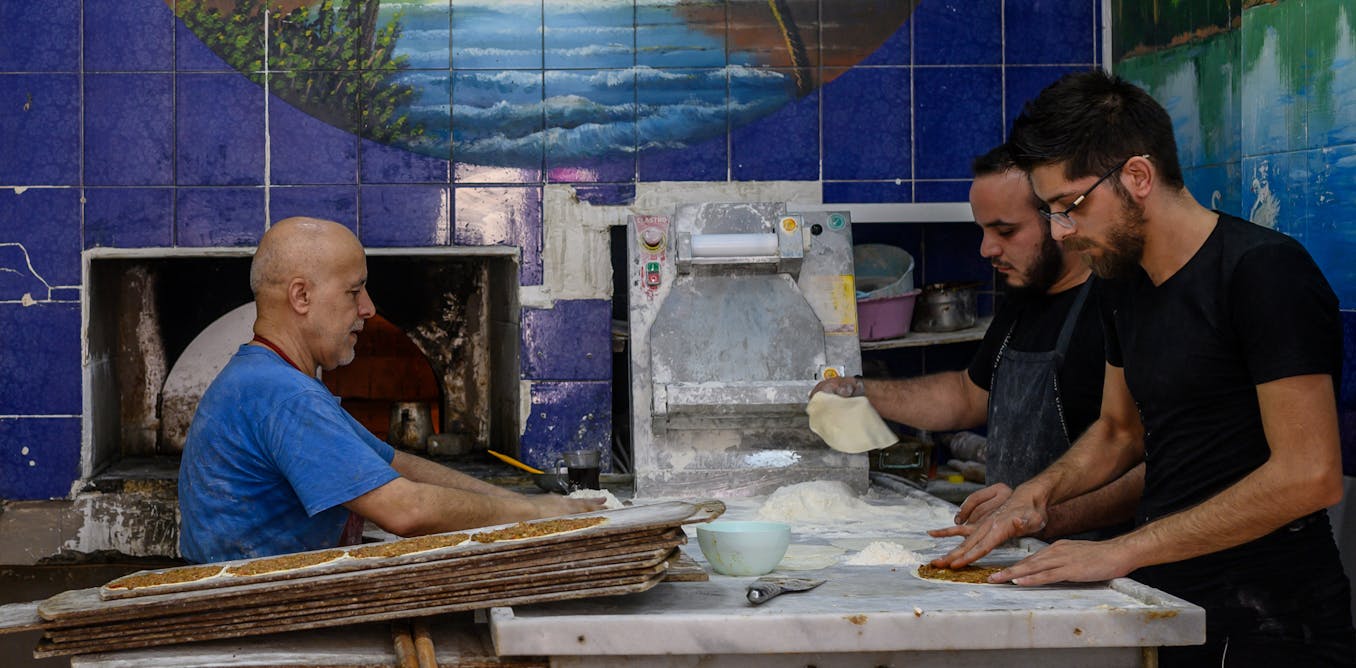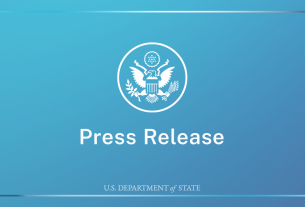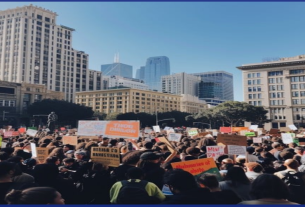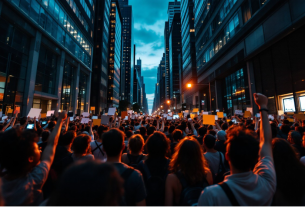By the end of 2024, the number of people worldwide who had been “forcibly displaced as a result of persecution, conflict, violence, human rights violations or events seriously disturbing public order” and had fled their countries stood at approximately 42.7 million, according to the UN Refugee Agency. Whether they are asylum seekers requesting temporary sanctuary or refugees who are unwilling to return to their countries of origin, forced migrants are people who haphazardly migrate to and strive to find safety in a new country.
While much attention focuses on their immediate needs, such as shelter, food, and security, many forced migrants are doing something remarkable: they’re starting businesses. For example, in Turkey, over 14,000 formal businesses owned or co-owned by Syrian forced migrants have been registered since the war in Syria began in 2011. By opening small restaurants, grocery stores and service providers, these entrepreneurs are working to rebuild their lives and contribute to their host communities.
However, building a business is often an uphill battle. Many forced migrant entrepreneurs face language barriers, discrimination and legal uncertainty. Yet, some manage to succeed. What makes the difference? Our recent research on Syrian forced migrant entrepreneurs in Turkey offers new insights. We point to the key factors that shape whether forced migrant businesses thrived or struggled. Understanding how these factors interact may reveal not only how to most effectively support forced migrant entrepreneurship but also how to ensure more inclusive societies.
The role of a host country identity
Forced migrants often turn to entrepreneurship out of necessity. Barred from regular employment or struggling to find work due to unrecognised credentials or to prejudice, many start small businesses to survive. The key question here is what transforms that act of survival into a story of success in a host country? Our study of 170 Syrian forced migrant entrepreneurs showed that their business performance didn’t just depend on acumen or capital but was also tied to how they saw themselves with respect to the host society.
Those who had a host country identity, that is, who reported having a strong sense of belonging and an emotional and mental connection to the people and institutions in Turkey, were more likely to adapt their businesses to local customers, seek opportunities, and build lasting relationships. A host country identity was a predictor of both financial performance (ie whether the business was more profitable and had higher returns relative to its main competitors) and customer performance (ie whether the business attained superior outcomes in managing its customer base compared to its main competitors).
A host country identity doesn’t form in a vacuum. Local language proficiency plays a powerful role. In our study, forced migrants who felt confident speaking the host country’s language were more likely to feel connected to local contexts, including markets and customers. In contrast, perceived discrimination had the opposite effect. We found that when entrepreneurs reported being treated unfairly by customers, landlords, or officials, it chipped away at their sense of belonging. In fact, social exclusion can be subtle, with customers avoiding shops, commercial landlords denying lease agreements, or government officials delaying permits. We found that these experiences hindered the success of forced migrants’ businesses by curbing their sense of connectedness to the host country.
The role of legal protection – and its timing
Legal status plays a critical but often overlooked role in this story. In Turkey, Syrian forced migrants are granted “temporary protection” status, which affects their ability to access capital and open formal businesses. But not everyone receives this protection at the same time. We found that promptly granted formal protection was crucial. Forced migrants who received legal temporary protection shortly after arrival were affected by discriminatory attitudes to a lesser extent, hence feeling more secure and included in the host country. By contrast, those who waited longer for protection tended to be more adversely affected by discriminatory attitudes, which weakened their feeling of connection toward the host country. Even when they eventually got legal status, the damage to their sense of belonging had often already been done. We believe that this delay creates a kind of invisible disadvantage, one that policies aimed at helping forced migrants rarely address.
A social justice issue
This isn’t only about forced migrant business owners, but all of us. When forced migrant entrepreneurs succeed, they don’t just lift themselves out of poverty or precarity. They create jobs, pay taxes, serve customers, and bring new ideas into local economies. They become part of the social and economic fabric of their communities. In contrast, when they’re held back due to language barriers, discrimination or slow-moving legal systems, everyone loses out on their potential.
This is also a social justice issue. Forced migrants didn’t choose to leave their homes. Many lost everything. And yet, instead of giving up, they’re trying to contribute and belong. The least we can do is remove the barriers that make their integration harder than it already is.
Our research suggests a few actions that policymakers and civil society can take. First, ensure timely legal protection for forced migrants. Fast-tracking legal status can give them the foundation they need to start planning their lives and their businesses with confidence. Second, invest in language programmes. Forced migrants with strong language skills are better positioned to engage economically and socially. Third, combat discrimination through public education. Negative stereotypes about forced migrants don’t just hurt feelings, they hurt economies. Promoting positive narratives and intergroup contact can reduce prejudice and build more inclusive communities.
The Fast Track initiative in Sweden, which partially reflected these recommendations by focusing on language learning, credential recognition, and “workplace integration”, illustrated how targeted support can accelerate inclusion. According to a report prepared for the Nordic Council of Ministers, a Fast Track effort that focused on newly arrived entrepreneurs “led to… increased motivation and inspiration” and “83 new businesses [being] initiated by participants”. These findings underscore the potential effects of coordinated, early interventions.
Forced migration is one of the defining issues of our time. As wars, climate change, and instability continue to uproot people, countries around the world will need to do more than offer short-term aid. They’ll need to offer pathways to belonging, and that starts with recognising that forced migrant entrepreneurs aren’t a problem to be solved. They’re part of how countries can integrate newcomers while boosting economic growth and community development.
A weekly e-mail in English featuring expertise from scholars and researchers. It provides an introduction to the diversity of research coming out of the continent and considers some of the key issues facing European countries. Get the newsletter!

The European Academy of Management (EURAM) is a learned society founded in 2001. With over 2,000 members from 60 countries in Europe and beyond, EURAM aims at advancing the academic discipline of management in Europe.



